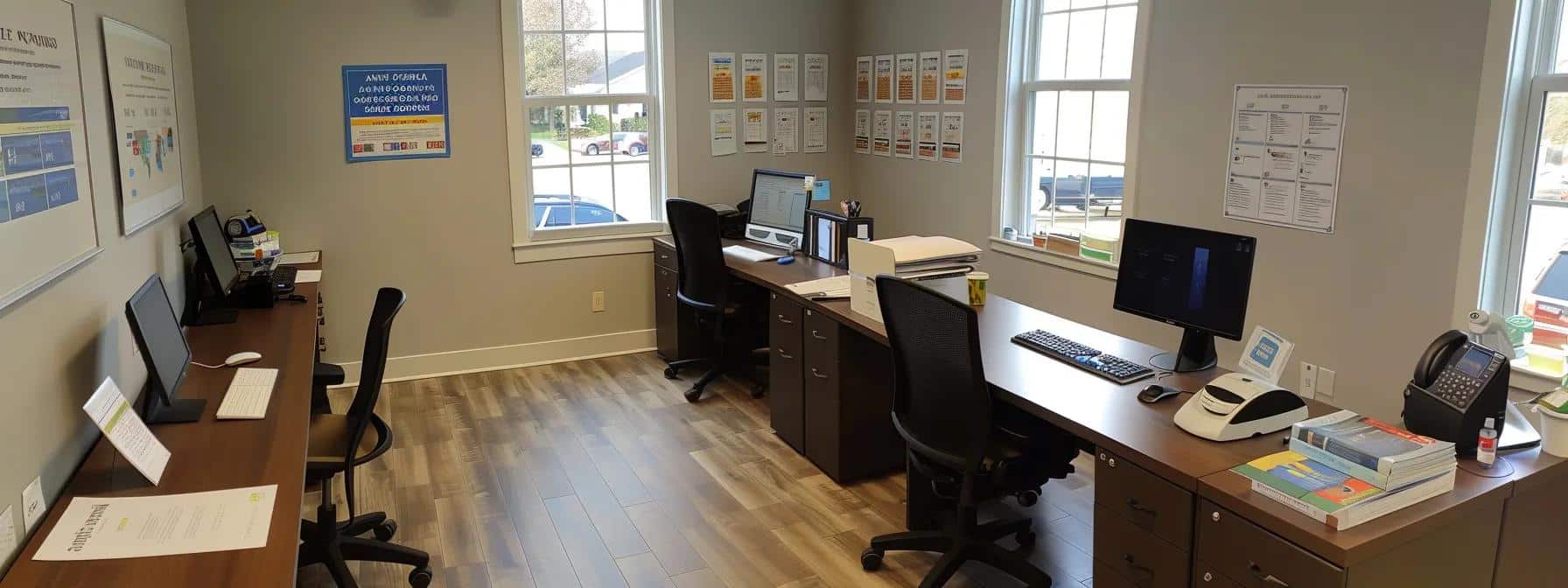Stay Illuminated: Backup Power Solutions for Lexington Homes
When power outages strike unexpectedly, homeowners need reliable backup power solutions to ensure safety, preserve comfort, and maintain daily activities. This article explores the benefits of backup systems, compares available options, and examines installation, maintenance, and cost factors. Lexington homeowners can discover how modern energy solutions not only provide peace of mind during emergencies but also enhance long-term property value.
Understand the Benefits of Backup Power Solutions for Homes
Backup power systems offer enhanced reliability, improved energy independence, and long-term cost savings. They ensure an uninterrupted power supply during emergencies—from severe weather to grid failures—and keep essential operations running, such as sump pumps and heating systems. Integration with solar panels and energy storage systems reduces dependency on fossil fuels, while updated power infrastructure increases home value.
Explore Reliability and Security During Power Outages
Backup power systems provide a continuous electricity supply, critical for safety and security. For example, a well-installed whole home generator can safeguard sensitive equipment and essential appliances, including medical devices.
Learn About Energy Independence and Cost Savings
Harnessing renewable energy through solar power reduces grid reliance and lowers monthly energy bills. Over time, backup systems generate long-term financial savings with reduced energy costs and potential government incentives.
Discover Diverse Applications for Backup Systems
Modern backup solutions can be tailored for various needs—from protecting critical electronics and maintaining communication channels to supporting life-sustaining appliances. Options include whole home generators, battery backup systems, and hybrid solutions combining multiple technologies.
Assess Convenience for Everyday Household Tasks
With backup power, essential appliance operations and home office tasks continue uninterrupted during outages, boosting productivity and minimizing inconvenience.
Review Environmental Benefits of Modern Solutions
Backup systems that integrate solar power help lower carbon footprints and promote sustainability. They conserve energy, reduce emissions, and contribute to the fight against climate change.
Identify Enhancements for Property Value Over Time
Investing in backup power increases a home’s marketability. Prospective buyers value the added safety, energy independence, and resilience provided by such systems.
Compare Different Types of Backup Power Options Available

Homeowners can choose from several backup power options based on efficiency, installation complexity, and costs. Options include standalone generator systems (diesel, natural gas, or propane), battery backup systems, UPS units for sensitive electronics, and hybrid solutions that combine generators, batteries, and solar panels.
Examine Solar Energy Systems for Residential Use
Solar energy systems capture the sun’s energy as a clean, renewable source that can be stored or used immediately during outages. Paired with battery storage, they reduce reliance on traditional fuel-based generators.
Analyze Generator Types and Their Suitability
Generators remain popular for prolonged outages. Available in various sizes to meet household needs, key considerations include generator installation cost, maintenance requirements, and safety features such as proper transfer switch integration.
Review Battery Backup Systems for Efficient Storage
Battery backup systems deliver immediate power during outages and are effective for critical loads like sump pumps and communication devices. They offer a sustainable solution when paired with renewable energy sources.
Consider Hybrid Solutions for Ultimate Flexibility
Hybrid systems combine generators, battery backups, and solar energy to deliver a multi-source approach. Their flexibility allows homeowners to switch between power sources for optimal performance and cost-efficiency.
Discuss the Role of Uninterruptible Power Supply Units
UPS units provide instantaneous power during outages, protecting sensitive electronics from data loss and damage. They are essential for homes with significant technological investments until longer-term systems activate.
Identify Key Features to Look for in Each Type
Important factors include automatic start capabilities, ease of maintenance, fuel efficiency, safety certifications, and compatibility with home automation systems. Consider warranty periods and reliable customer support when making a decision.
Evaluate Installation and Maintenance of Backup Power Systems
Professional installation is critical to ensure safe and efficient operation of backup power systems. Certified electricians or specialized contractors handle complex wiring, reducing risks like gas leaks or electrical hazards and ensuring compliance with building codes. Regular maintenance helps prevent issues such as mold buildup or faulty circuit breakers.
Understand the Steps for Professional Installation
Installation involves planning, site assessment, adherence to electrical wiring standards, and integration with the existing system. Experts begin with a thorough inspection to determine load requirements and optimal component configurations.
Learn About DIY Options for Certain Power Systems
Certain battery backup systems or small UPS devices can be installed by knowledgeable homeowners following manufacturer instructions and safety guidelines.
Assess the Importance of Regular Maintenance Checks
Routine maintenance, including fuel system checks for generators, cleaning, battery replacement, and inspection of wiring and transfer switches, is essential for longevity and reliability.
Identify Common Issues and Troubleshooting Tips
Common issues include fuel degradation, declining battery performance, and wiring faults. Routine inspections and timely repairs help prevent long-term failures.
Review Warranties and Their Role in Long-Term Care
Warranties cover defects and potential failures. Adhering to warranty terms and scheduled maintenance is key to long-term system care.
Recognize How to Prepare Your Home for Installation
Preparation involves evaluating site accessibility, safe electrical cable routing, and creating clear equipment pathways, along with securing necessary permits and adhering to local regulations in Lexington.
Consider Costs and Financing Options for Backup Power

Investing in a backup power system requires balancing upfront installation costs with long-term savings and enhanced safety. Evaluating financing options, potential rebates, and government incentives can ease initial expenses, while long-term benefits include lower energy bills and increased property value.
Analyze Initial Investment Versus Long-Term Savings
While the upfront cost may be significant, savings from reduced energy bills and minimized outage-related losses can justify the investment over time.
Explore Financing Options for Your Backup Power Needs
Financing methods such as low-interest loans, leasing programs, and energy efficiency rebates are available for Lexington homeowners seeking backup power.
Understand Potential Rebates and Incentives Available
Local and federal rebates and incentive programs help reduce installation costs and promote renewable energy integration and efficiency improvements.
Calculate Return on Investment for Various Systems
Cost comparisons and energy consumption data can help calculate the ROI. For instance, a Generac whole home generator paired with proper wiring upgrades may reduce downtime and lower insurance risks.
Assess Budget-Friendly Alternatives for Homeowners
Options range from portable generators to small-scale battery systems that provide emergency power for essential appliances without the higher cost of full home systems.
Review Cost Comparisons of Different Power Solutions
Assess Backup Power Needs Based on Home Size and Location
Backup power requirements vary with home size, local climate, and outage frequency. It is important to calculate the overall power load needed for essential appliances and systems, ensuring the chosen backup system meets demands efficiently.
Determine Power Requirements Based on Household Size
Larger households require higher-capacity systems to power multiple appliances simultaneously. Calculating wattage needs ensures support for all critical devices during an outage.
Evaluate Local Climate Impacts on Power Needs
Homes in regions with frequent storms or extreme temperatures may need additional backup capacity to cover extended outages reliably.
Consider the Frequency of Power Outages in Your Area
Historical outage data and regional grid reliability influence the need for a robust backup generator or hybrid solution to minimize disruptions.
Identify Essential Appliances for Backup Power Supply
Essential appliances such as sump pumps, HVAC systems, refrigerators, and medical devices should be prioritized to ensure adequate power during emergencies.
Discuss Energy Efficiency and Its Impact on Needs
Energy-efficient appliances reduce overall power requirements, leading to more cost-effective and reliable backup solutions.
Review Personalized Solutions Based on Lifestyle
Tailor backup power solutions for unique needs like remote work or home-based medical care by consulting experts to align with specific energy usage and financial profiles.
Explore Local Resources for Backup Power Solutions in Lexington

Lexington homeowners can access local resources for backup power solutions, including electrical contractors who offer installation, maintenance, and consultation services. Community workshops, customer testimonials, and service ratings provide additional insights for informed decision-making while ensuring compliance with Kentucky building codes.
Research Reputable Providers and Installers in the Area
Consult online reviews and community recommendations to identify licensed backup power installers offering comprehensive service packages that include installation, maintenance, and emergency support.
Review Customer Testimonials and Service Ratings
Independent service ratings and customer feedback offer real-world performance insights into whether a provider meets safety and service standards.
Identify Local Workshops or Demos for Power Systems
Community-sponsored workshops and live demonstrations can give homeowners firsthand experience with backup systems and clarify installation and maintenance procedures.
Discuss Community Programs and Initiatives Available
Local government programs and community energy initiatives may offer additional financial incentives or technical support for backup power upgrades.
Connect With Local Experts for Tailored Advice
Engaging with local electrical contractors, such as Doctor Electric, provides personalized advice addressing household needs, wiring challenges, and regulatory requirements.
Stay Updated on Regulations Specific to Lexington Homes
Keep informed about local codes, permitting processes, and safety regulations to ensure installations remain compliant and reduce potential legal or safety issues.
Frequently Asked Questions
Q: What is the primary benefit of installing a backup power system? A: Backup systems ensure continuous power during outages, protecting essential appliances while maintaining safety and comfort.
Q: Can I integrate solar power with my backup generator? A: Yes, hybrid systems combine solar panels, batteries, and generators to maximize energy efficiency and reliability.
Q: How often should I schedule maintenance for my backup power system? A: Regular maintenance is recommended every 6 to 12 months, depending on system type and usage.
Q: Are there any financial incentives available for installing backup systems? A: Many local and federal programs offer rebates and financing options to help reduce upfront costs and improve ROI.
Q: How do I determine the right backup power capacity for my home? A: Assess your home’s energy requirements, including key appliances and load management, preferably with guidance from a licensed contractor.
Final Thoughts
Backup power solutions provide a vital layer of security and convenience, ensuring that households remain operational during outages and emergencies. For Lexington homeowners, these systems offer increased energy independence, cost savings, and enhanced property value. With diverse options available—from generators to battery backups and hybrid systems—choosing the right solution requires careful assessment of personal needs and local resources. Investing in reliable backup power ultimately leads to greater safety, efficiency, and peace of mind during unpredictable power disruptions.

